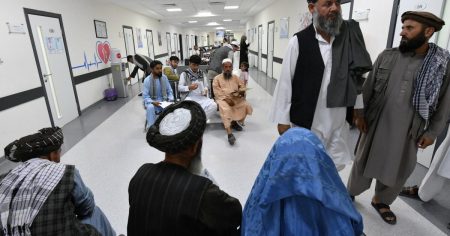The Nigerian Correctional Service (NCoS) faces a mounting financial burden as the cost of feeding pre-trial detainees continues to escalate. Between January and August 2025, the NCoS expended a staggering N14.04 billion on inmate meals, a figure driven by the consistently high number of individuals held in custody without trial and a recent increase in the daily feeding allowance. This financial strain underscores the broader challenges facing Nigeria’s correctional system, including overcrowding, prolonged pre-trial detention, and the need for sustained budgetary allocation to ensure the humane treatment of inmates.
The surge in expenditure stems from two key factors. Firstly, the number of awaiting-trial inmates has remained stubbornly high throughout the first eight months of 2025, fluctuating between 48,932 in January and 53,473 in July, with an average of approximately 52,665 inmates. This persistent backlog of pre-trial detainees puts immense pressure on the NCoS’s resources, including its budget for inmate feeding. Secondly, the recent increase in the daily feeding allowance from N750 to N1,125 per inmate, implemented by the Tinubu administration, has significantly amplified the overall cost. With the allowance increase, the daily expenditure on feeding awaiting-trial inmates rose to approximately N59.2 million, accumulating to the aforementioned N14.04 billion over the 237-day period between January 1 and August 25.
The NCoS’s commitment to fulfilling its constitutional mandate of providing adequate sustenance for all inmates, despite these financial pressures, has been emphasized by its spokesperson, Umar Abubakar. He highlighted the ongoing efforts to ensure the timely and responsible procurement and delivery of food supplies, acknowledging the impact of economic challenges and inflation. Abubakar further underscored the NCoS’s proactive approach to maintaining operational efficiency through strategic partnerships with government agencies and food contractors. This collaborative strategy is crucial for navigating the financial constraints and ensuring the uninterrupted provision of meals to the inmate population.
Furthermore, Abubakar emphasized the NCoS’s receptive stance towards collaboration with civil society organizations and oversight bodies. This openness to external scrutiny and partnership demonstrates the service’s commitment to upholding standards of inmate care and protecting their fundamental right to adequate nutrition. The NCoS recognizes the importance of transparency and accountability in its operations and actively seeks to engage with external stakeholders to ensure that its practices align with best practices and respect the rights and well-being of all those within its custody.
The NCoS’s approach to inmate feeding extends beyond mere sustenance. Abubakar articulated the service’s broader commitment to humane corrections, emphasizing that the prioritization of inmate welfare is not only a legal obligation but also a foundational element of the rehabilitation and reintegration process. By ensuring adequate nutrition and decent living conditions, the NCoS aims to create an environment conducive to positive change and successful reentry into society. This reflects a shift towards a more holistic approach to corrections, moving beyond punitive measures and focusing on the restorative potential of the system.
In conclusion, the NCoS’s expenditure of N14.04 billion on feeding awaiting-trial inmates underscores the significant financial burden associated with managing a large and growing pre-trial detainee population. The confluence of high inmate numbers and the increased feeding allowance necessitates innovative resource management and strategic partnerships. The NCoS’s commitment to responsible food procurement, collaboration with external stakeholders, and its broader focus on humane correctional practices demonstrates a proactive approach to navigating these financial challenges and ensuring the well-being of all inmates. However, the underlying issue of prolonged pre-trial detention remains a significant concern that requires broader systemic reforms within Nigeria’s justice system to address the root causes of overcrowding and ensure the timely dispensation of justice.














